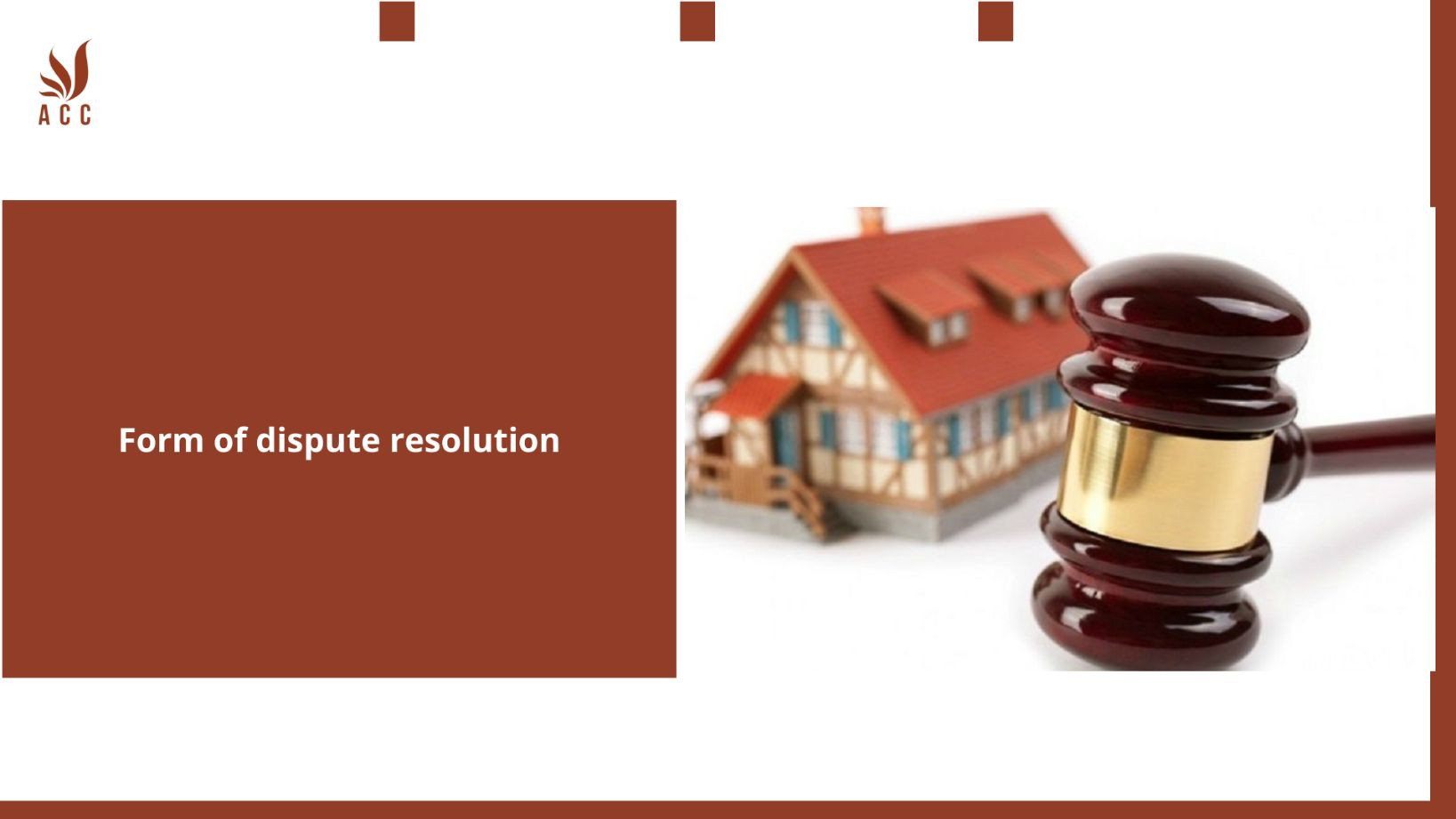Dispute resolution refers to the process of resolving conflicts or disagreements between parties, whether individuals, organizations, or governments. There are several common forms of dispute resolution, each with its own characteristics and procedures. Here are some of the primary methods of dispute resolution:

1. Negotiation:
Negotiation is an informal process where parties directly communicate to reach an agreement or settlement.
It is flexible and allows parties to control the outcome without third-party involvement.
Parties can negotiate with the assistance of legal counsel or mediators.
2. Mediation:
Mediation involves a neutral third party, the mediator, who assists parties in finding a mutually acceptable solution.
The mediator does not make decisions but facilitates communication and encourages compromise.
Mediation is often less adversarial and can preserve relationships.
3. Arbitration:
Arbitration is a more formal process where parties present their case to an arbitrator or panel of arbitrators.
The arbitrator(s) render a decision that is legally binding, similar to a court judgment.
It can be less time-consuming and costly than litigation but may have limited appeal options.
4. Litigation:
Litigation involves taking a dispute to court, where parties present their case to a judge and/or jury.
It is a formal and often adversarial process, with strict rules of procedure and evidence.
A court judgment is legally binding, but it may be subject to appeals.
5. Collaborative Law:
Collaborative law is a structured and non-adversarial process where parties and their attorneys commit to finding a resolution outside of court.
Experts, such as financial advisors or mental health professionals, may be involved to assist in problem-solving.
6. Online Dispute Resolution (ODR):
ODR uses technology and the internet to facilitate dispute resolution, often in e-commerce or online platforms.
It can include negotiation, mediation, and arbitration, with the process conducted electronically.
7. When using ACC Law Firm's land-related services, entrepreneurs will receive
When using ACC Law Firm's land-related services, entrepreneurs will receive expert advice and assistance in navigating various legal aspects of land ownership and transactions. This includes guidance in property acquisitions, leases, zoning regulations, land use planning, and any other land-related legal matters. ACC Law Firm's team of experienced attorneys will provide personalized support to entrepreneurs, ensuring compliance with applicable laws and regulations, protecting property rights, and optimizing the value of their land investments.
8. Q&A
Q1: What are the common forms of dispute resolution used to address conflicts and disagreements, especially in legal and business contexts?
A1: Common forms of dispute resolution include litigation (going to court), arbitration, mediation, and negotiation. These methods are employed to settle disputes and reach resolutions in legal, business, and various other settings.
Q2: What is the key difference between arbitration and mediation as forms of dispute resolution?
A2: The key difference is that in arbitration, a neutral third party (an arbitrator or panel) makes a binding decision after hearing arguments from both sides, similar to a court judgment. In mediation, a neutral mediator facilitates communication between the parties but does not impose a decision; the resolution is reached by the parties themselves.
Q3: When is negotiation typically used as a form of dispute resolution, and what are its advantages?
A3: Negotiation is often used when parties prefer to reach a resolution on their terms. It offers flexibility, control over the outcome, and the possibility of maintaining a relationship, making it suitable for various situations, including business deals, family disputes, and settlements.
Q4: How can businesses or individuals determine the most suitable form of dispute resolution for their specific case or conflict?
A4: The choice of dispute resolution method depends on factors such as the nature of the dispute, the desired outcome, time and cost considerations, and the willingness of parties to cooperate. Legal counsel or professional mediators can assist in making an informed choice based on the circumstances.
Nội dung bài viết:






Bình luận